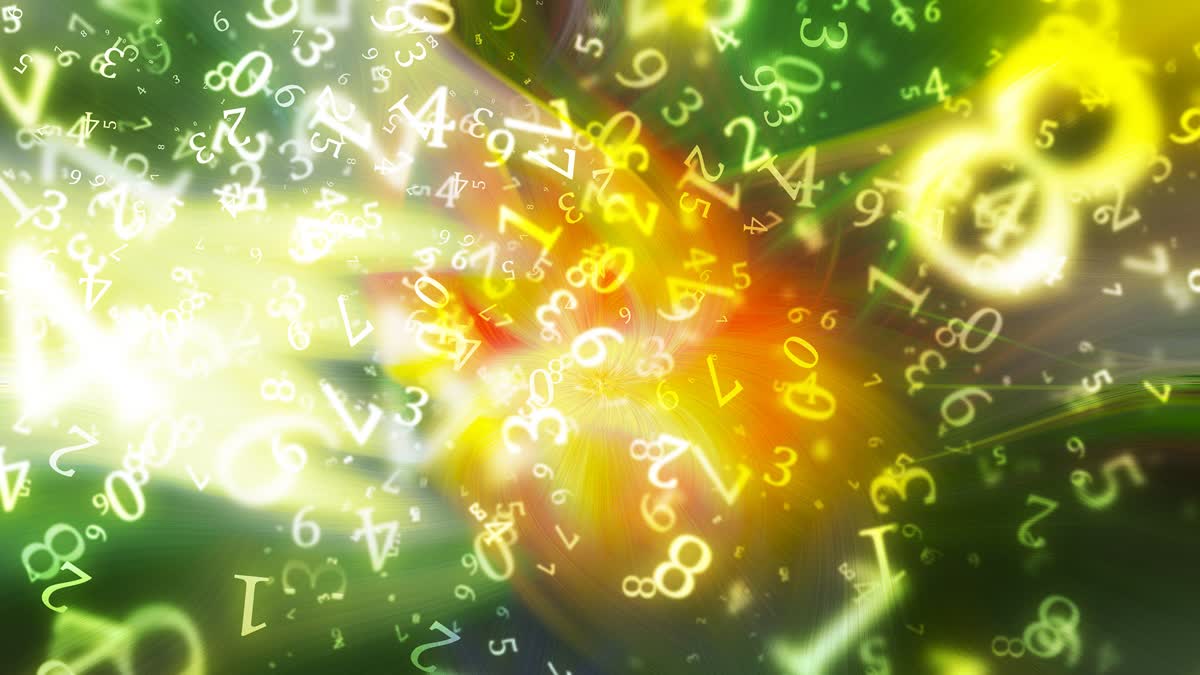Hyderabad: November 18 is designated as International Numerology Day each year. Eminent numerologist J.C. Choudhary initiated the ‘International Numerology Day’ to facilitate standardization in the discipline by integrating various streams. The event also commemorates Choudhary’s birthday.
What is Numerology?
Numerology, the study exploring the connection between numbers and various life aspects, has been intertwined with myths. It is also the study of the numerical value of letters in words, names and concepts. Numerology is about 5,000 years old and originated from ancient civilizations. According to numerologists, everything in the world depends on numerical patterns. They believe that these patterns come from the inherent vibrations of numbers.
History of Numerology
Numerology originates from the Latin term “Numerus” meaning number, and the Greek word “Logos” meaning word, thought process and expression. Its origins trace back to ancient civilizations such as Babylon, Egypt, and China, where numbers were believed to hold spiritual, cosmic, and even predictive powers.
In ancient Babylon, numerology was intertwined with astrology, where numbers were assigned to celestial bodies and used to interpret cosmic influences on human affairs. In Egypt, numerology played a crucial role in religious and mystical practices. The Egyptians attributed magical properties to numbers and used them in rituals, architecture, and even in the construction of pyramids.
Meanwhile, in ancient China, numerology, known as "feng shui," was integrated into everyday life and governance. Numbers were believed to influence the harmony and balance of spaces, affecting everything from architecture to personal fortune.
Is Numerology a Science?
Numerology claims that particular numbers, such as a person’s date of birth, can be used to predict their personality and the events of their life. It is considered a pseudoscience, like astrology, which means that it does not have a reliable predictive ability.
It's difficult for belief systems like numerology to produce results which can be tested and confirmed to be true.
Types of Numerology
Pythagorean Numerology: Pythagorean numerology is also known as Western numerology. Pythagorean numerology, numbers are reduced to single digits one through nine, although there are master numbers, such as 11, 22, and 33. The numbers in Pythagorean numerology control your personality, desires, strengths, weaknesses, and purpose in life.
- Chaldean Numerology: Chaldean numerology is one of the lesser-known types of numerology. Chaldea was a region located in ancient Mesopotamia. It is the hardest numerology to learn because it is very complicated. However, it is also considered to have the most accurate predictions. In Chaldean mythology, there are two important numbers: one for your outer nature and one for your inner nature. Chaldean numerology is heavily based on fate. We can understand our destiny by interpreting the numbers from our names and birthdays. Each number represents personal characteristics and traits.
- Tamil Numerology: Tamil numerology is also called Vedic numerology or Indian numerology. It originated in southern India in the Tamil region. It is considered one of the oldest forms of numerology. Tamil numerology focuses on perception, such as a person’s view of the world, how they see themselves, and what they believe. One’s destiny number is essential in Tamil numerology. It highlights a person’s strengths and weaknesses. It explains how people learn and grow from each life experience.
- Kabbalah Numerology: Kabbalah numerology has its origins in Judaism and Hebrew mysticism. Other than Pythagorean numerology, Kabbalah numerology is probably the most familiar. Kabbalah numerology recognizes that every person is made up of energy and adds to the world’s energy. Like other numerology traits, one’s number is calculated by looking at one’s name and birthday. This number represents who a person is. It sheds light on each person’s ultimate purpose in life.
5 Core Numbers in Numerology
Life Path Number: A Life Path number can be any single-digit number 1-9, or one of the Master Numbers: 11, 22, and 33. Your Life Path number is calculated using your complete birth date, but it's important that it's calculated a certain way to get the correct number.- Destiny Number: The Destiny Number, calculated from your name, gives you a glimpse of your potential and destiny. Think of it as a road map, guiding you towards achieving your life goals and helping you understand your relationships and compatibility with others.
- Soul Urge Number: The Soul Urge Number, derived from the vowels in your name, can help you discover them! It's like a compass, pointing you towards your true purpose in life. Your Soul Urge number is derived from your full birth name, but now you disregard the consonants and only use the vowels. This core number can be any digit 1-9 or any of the Master Numbers.
- Birthday Number: It carries a special number, the Birthday Number, that speaks volumes about your individuality and uniqueness. While double-digit numbers are normally reduced to single digits in Numerology, in this case, they stay in the double digit.
- The Expression Number: Calculated from your name, this number shines a light on your talents, abilities, and potential. It's like a helping hand, guiding you to find your place in the world and realize your full potential. Your Expression number can be any digit 1-9, or you could have a Master Number 11, 22, or 33 as your Expression.
Read more:



